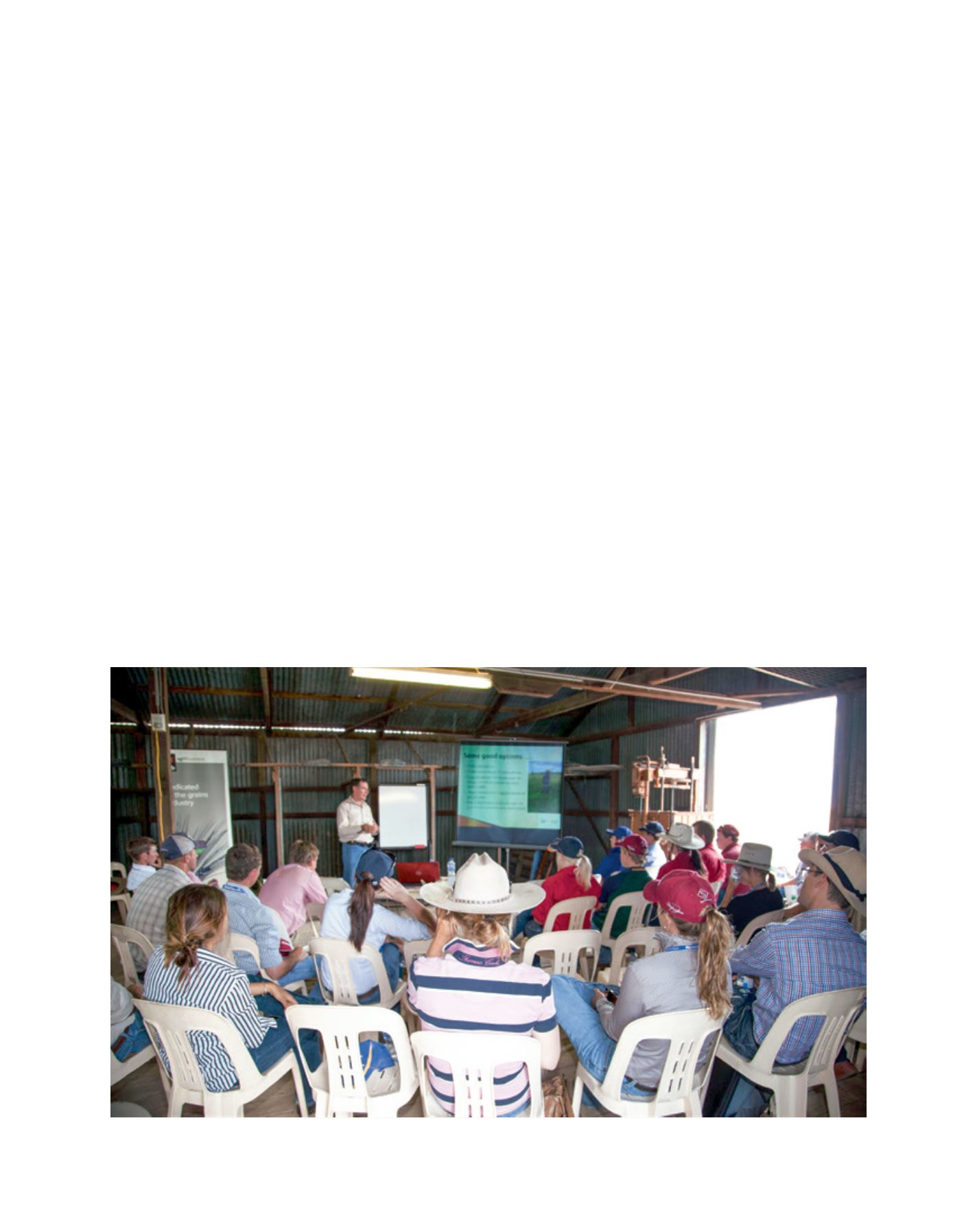

[
] 219
continuing to build thriving regional and rural agricultural
communities, and making sure that the cultural divide
between city and country areas of Australia is closed while
ensuring that metropolitan-based Australians have a good and
correct perception of the Australian agriculture industry and
the contribution it makes to the country.
Handing over the family farm
One of the major issues the ageing population brings with it
for family farming is successful secession planning of the farm
from one generation to the next. Succession planning and
successful implementation remains a major barrier to retain-
ing young people in agriculture. Making sure these family
farms are financially viable and finances are managed correctly
is another key factor.
The attitudinal survey revealed the vast majority of FFN
members (90 per cent) indicated that being able to afford
the services of a succession planning and financial manage-
ment consultant was their main barrier in undertaking
planning. The membership agreed that government assis-
tance to make the provision of these vital business services
attainable is essential.
“My grandfather’s farm is currently being torn apart by
a very long and unsuccessful succession planning process.
Help is needed in the areas of planning for succession before
it is needed to be implemented. Also maybe we shouldn’t
talk about it as succession planning as I think that scares my
grandfather, maybe just call it future planning as that’s what
it is and that to me sounds like a much simpler and easier task
to do,” said one FFN Queensland member.
“It [government assistance] would encourage more families
to participate in succession planning, which as we know is
integral in achieving the farm being passed onto future gener-
ations and managed in a successful way that fulfils all family
wishes,” said an FFN New South Wales member.
FFN has recommended to the Australian Government that
through the Department of Agriculture, it should create a
succession planning programme, aimed at helping to finance
family farms to implement succession planning as the farm
transitions from one generation to the next. This would
help to ensure the next generation of Australian farmers can
continue to boost the country’s economy through lucrative
Asian trading opportunities and build upon the strong opera-
tional foundation the generation before them has created.
Building better regional and rural communities
Australia is a sparsely populated nation, with 22 million residents
living in 7,692,024 square kilometres, the majority of whom live
in capital cities. This means that for the most part, regional and
rural towns in Australia are very spread out with small popula-
tions ranging anywhere from a few hundred residents right up
to 10,000. It is very common for these residents to be hours and
hundreds of kilometres away from their nearest capital city.
Geographical isolation brings about certain community
issues. However, Australia is combating these issues through
trying to build more dynamic and vibrant rural and regional
communities. It is focusing on empowering women living in
these areas who work in agriculture by ensuring that they
have access to health services, particularly mental health
support services, and by bridging the divide between rural
Image: Future Farmers Network
Australia is combating the issues of rural isolation by working to build dynamic and vibrant rural and regional communities
D
eep
R
oots
















